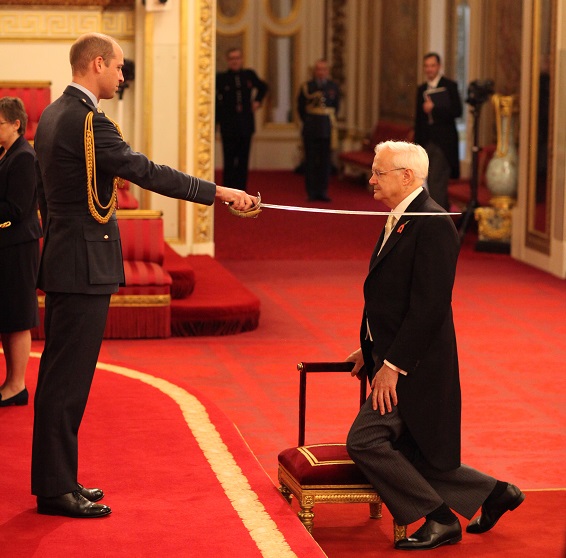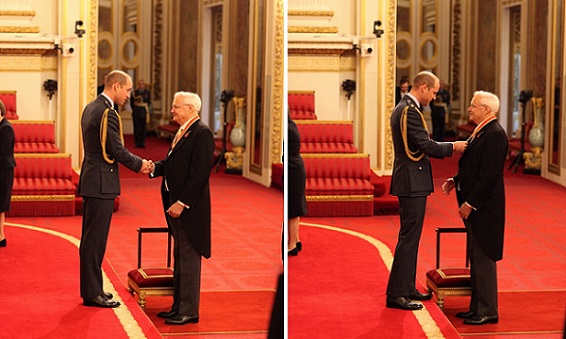Master of St John’s College knighted by the Duke of Cambridge
“It was a great honour and privilege to be knighted by the Duke of Cambridge whose visits to St John’s we remember with such great pleasure"
A formal ceremony was held at Buckingham Palace for people who have been awarded honours such as MBEs and knighthoods to receive their medals – and the head of St John’s became a Sir.
Sir Christopher Dobson was knighted in the Queen's Birthday Honours 2018 to commemorate his illustrious scientific career.

The Birthday Honours recognise the achievements of a wide range of extraordinary people from across the UK. Sir Christopher, Master of St John’s College, one of the largest and oldest of the Colleges of the University of Cambridge, was honoured for his contributions to Science and Higher Education.
The investiture ceremony is looked after by The Central Chancery of the Orders of Knighthood. Many weeks before an investiture takes place, all the medals – (called 'insignia’) are collected, counted and thoroughly cleaned.
The Duke of Cambridge usually uses The Queen's sword for the ceremony and he knighted Sir Christopher at the ceremony yesterday (Tuesday, November 7 2018).

Sir Christopher said: “It was a great honour and privilege to be knighted by the Duke of Cambridge whose visits to St John’s we remember with such great pleasure. I would like to take this opportunity to thank all the students, staff, alumni, and Fellows of St John’s who have sent me such kind messages on social media as well as by letter and email since the announcement of the knighthood in June. I have appreciated them all more than I can appropriately express in words.”
Sir Christopher is one of the world’s leading scientists working at the interface of the physical and biological sciences. Amongst other high-profile scientific achievements, in 2013 he co-founded the £50 million Cambridge Centre for Misfolding Diseases (CMD).
Scientists at the Centre focus on analysing the origins of neurodegenerative conditions - such as Alzheimer’s and Parkinson’s diseases - which occur because of ‘misfolded’ protein molecules. The experimental work by Sir Christopher and his inter-disciplinary research team has led to remarkable breakthroughs in the field.